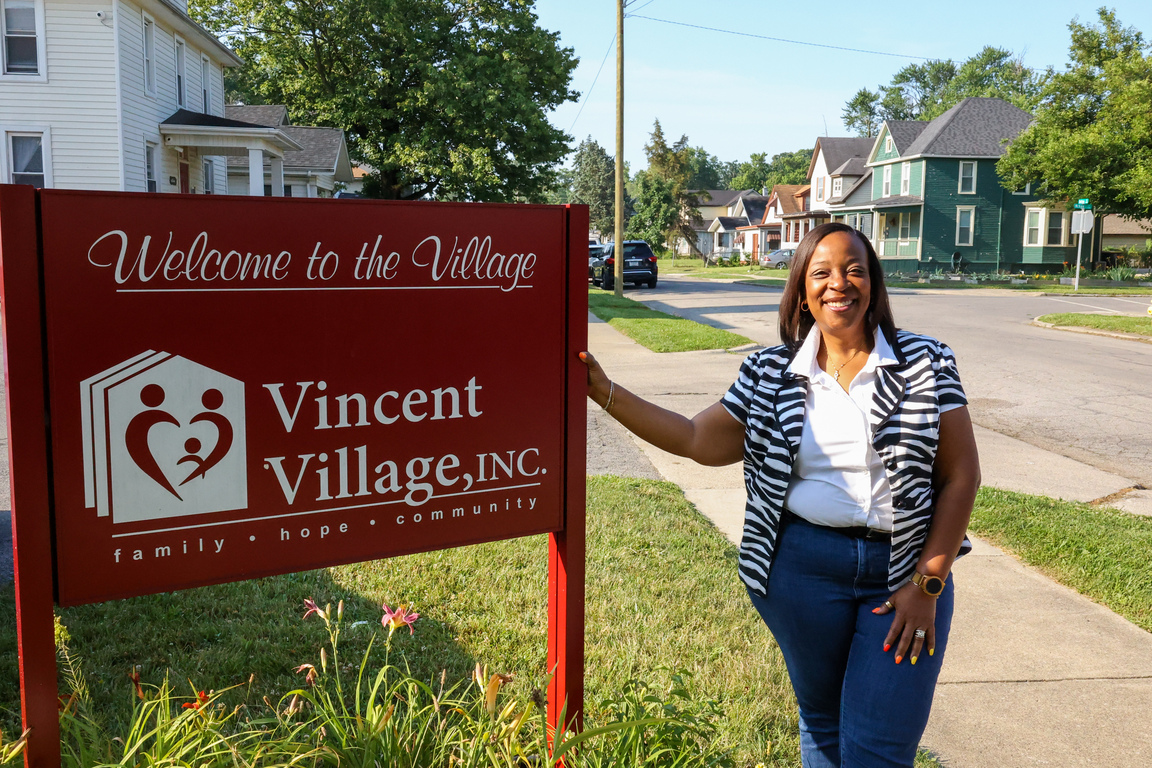FORT WAYNE — Sharon Tucker would love to work herself out of a job. As unlikely as that is, it doesn’t mean she stops trying.
Since the fall of 2021, Tucker has been executive director at Vincent Village Inc., a campus in Fort Wayne’s Oxford neighborhood. Vincent Village includes a transitional homeless shelter and 34 rental homes scattered along the streets around the shelter, rented to residents on an affordable scale.
From her warmly lit office, tucked into the basement of a former church on Holton Avenue, Tucker, who is also 6th District Fort Wayne City councilwoman, has had a front row seat to the real-world effects of inflation, rising rents and the affordable housing shortage.
“When the tide rises, everything rises with it,” she said. “When the housing market was booming, that was also an indicator that those who were struggling would be struggling at a greater gap.”
Indiana has a statewide shortage of 120,796 affordable and available rental homes for extremely low-income renter households, defined as those with incomes at or below the poverty level or 30 percent of their area median income, according to a report this year by the National Low Income Housing Coalition and Prosperity Indiana. Practically speaking, the report said, that means there are 39 affordable and available rental homes for every 100 extremely low-income household.
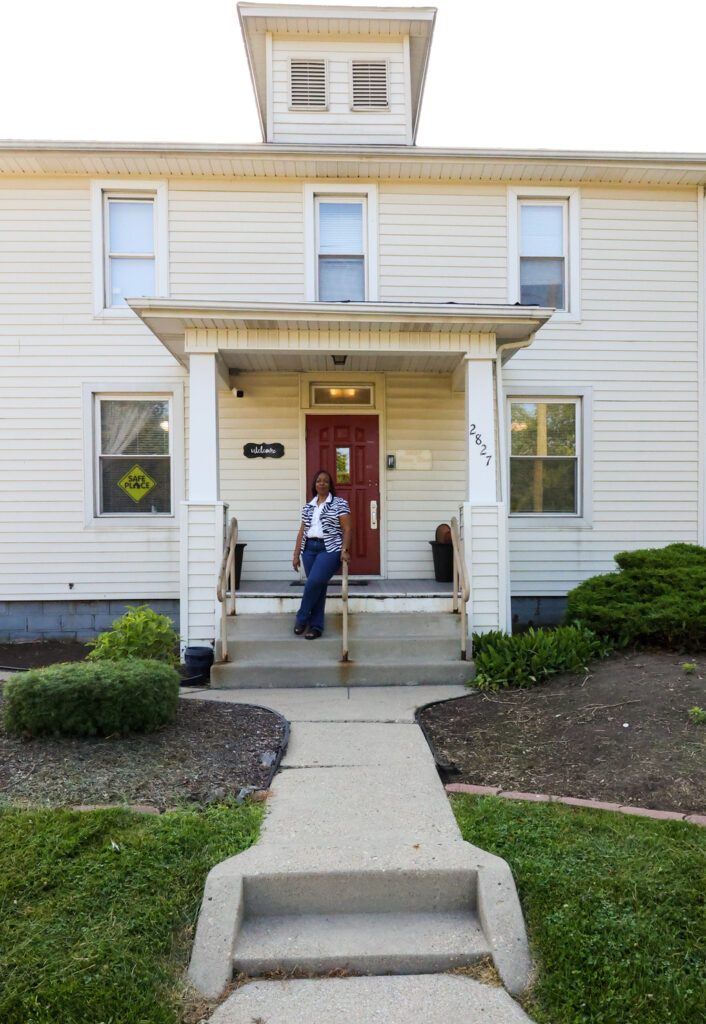
A job, even a full-time one, is no guarantee a struggling person can make rent. The National Low Income Housing Coalition and Prosperity Indiana put the state’s “housing wage” — what’s needed for a full-time Hoosier worker to afford a modest, two-bedroom apartment at fair market rent — at $19 an hour.
Indiana’s minimum wage is $7.25 an hour, the same as the federal minimum wage.
Tucker said Vincent Village has seen more people seeking help who have a stable income but aren’t able to find affordable housing.

“Even with doing everything right, you can be priced out of that unit,” she said.
Vincent Village also has seen an increase in the number of entire families, and larger families, who need housing assistance.
People on the margins often prioritize their most immediate needs over a rent payment: food, utilities, childcare. After missing a rent payment or two, it all comes to a head for them.
Part of the intensive case management offered to clients include a financial literacy program.
“They have a mindset that has to be retooled,” she said. “We’re helping them understand that your rent is the first step to staying housed.”
Tucker served on the board of Vincent Village before she became executive director. Before that, she had a career of more than 30 years in the insurance industry.
The skills she used most working in insurance, mitigating and assessing risk, are a good fit for her current role.
“It’s really everything I love,” she said.
As when she worked in insurance, her mind often dances with numbers. Today it’s “18, 6, 15,” the lives that are in her hands, staff and residents, for whom she has to make sure Vincent Village can financially support.
Vincent Village served 188 individuals and 62 families in 2022, according to its annual report.
More numbers are neatly lined up in dry-erase marker on a giant chart on her office wall.
Tucker calls it her “war board,” and it breaks down all the freestanding Vincent Village properties and notes the years they were built. Most reflect the makeup of the homes in the neighborhood, where there hasn’t been much new development for decades: 1920, 1924, 1925.
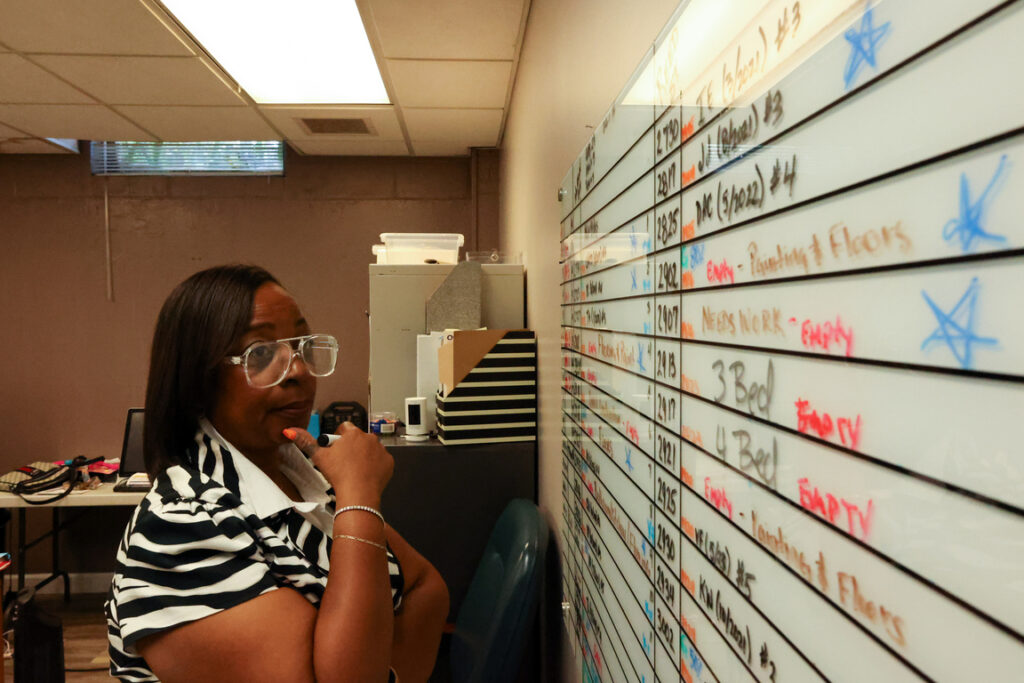
The war board shows which houses are occupied, and what work other houses need. One 1920 home needs new flooring and paint. Another has just had 40-year-old carpet removed.
“Even if we are able to get folks housed, they’re burdened with housing upkeep,” she said.
There’s been some progress in that area. Last year, Habitat for Humanity, one of Vincent Village’s many community partners, handed over the keys to a new home on Holton Avenue, providing a much-needed boost to the median age of the area’s homes.
Two blocks north of Vincent House, Pontiac Street is under construction to accommodate the welcome addition of a long-discussed grocery store. Currently, the neighborhood is considered a food desert with limited access to affordable and nutritious food, as the nearest grocery store is more than 2 miles away.
These little victories add up to build on Vincent Village’s legacy of more than 30 years. Breaking down the goals on the war board helps Tucker visualize the practical steps that need to be accomplished. Goal setting is one of the life skills she hopes she and her staff bring to the residents they help.
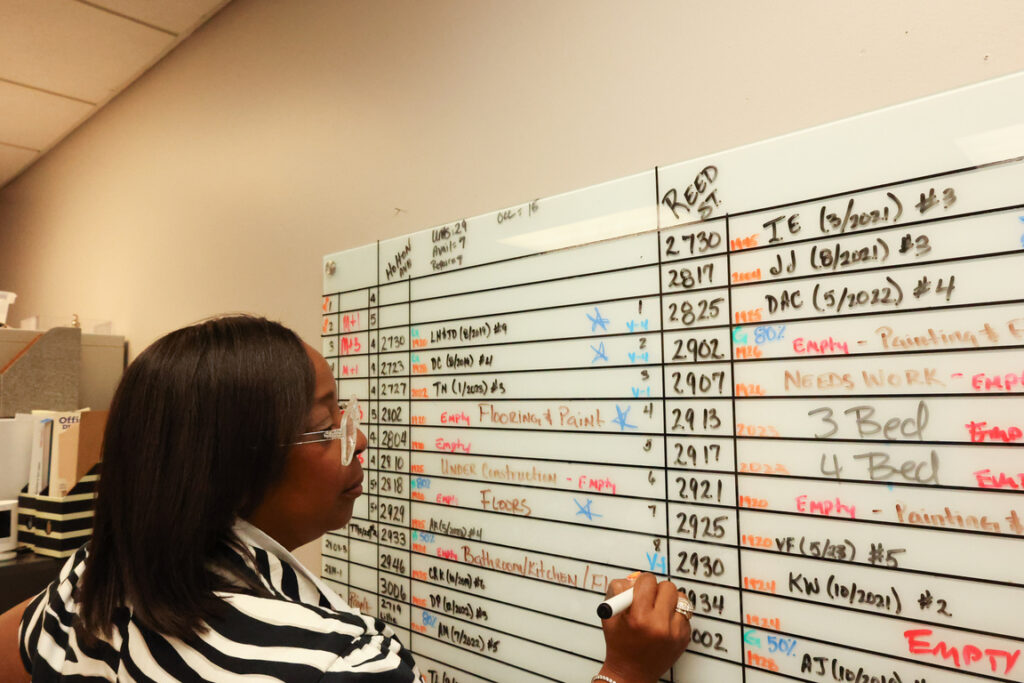
“They don’t want pity, they want honesty.” she said.
Gaining the trust of residents doesn’t happen overnight. By giving the residents factual support and offering life skills programming with community partners, Vincent Village hopes to break the generational cycle of poverty.
“These are God’s children that took a chance to trust us,” Tucker said. “And I am guarding their safety and protecting their peace.”
Current and former residents constantly text message “Miss Sharon” updates on their lives, and she replies with support and encouragement. That’s part of paying it forward, she said. While she has never been homeless, she had times in her adult life when she needed a support network, something that a lot of people facing homelessness lack. When she was working two jobs as a divorced parent and full-time student, she remembers that her support network of family, friends, and neighbors stepped up.
“The names escape me,” she said. “The kindness didn’t. We’ve got to pay it forward.”
Kelly Lundberg, Deputy Director for Community Development at the City of Fort Wayne’s Office of Housing and Neighborhood Services, said Vincent Village has come to play an essential role in preventing homelessness and also uplifting its neighborhood after a history of disinvestment. Walking around Holton Avenue and beyond, she said, it’s obvious the care residents have for their homes and neighbors.
“You can really tell they’ve embraced that mission,” Lundberg said. “They’ve become completely integrated into that neighborhood.”
Tucker fits in well, she said, because of her strong and decisive leadership both as executive director and city councilwoman and her ability to communicate the issues that families facing homelessness.
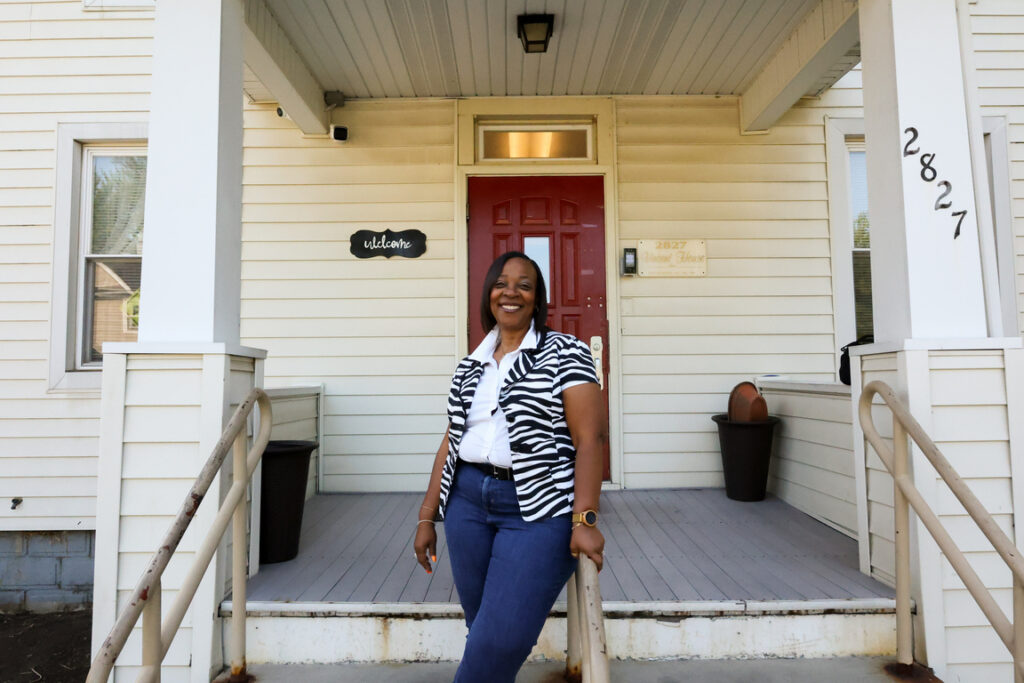
“She’s able to put it in terms that make sense for everyone,” Lundberg said. “She’s able to have a narrative that is meaningful to people.”
Amos Norman is District Executive Director of the YMCA of Greater Fort Wayne at the Renaissance Pointe branch, another of Vincent Village’s partners.
It’s that ability to share stories on a human level that has struck him about Tucker’s leadership. She excels at telling the stories of residents in the southeast part of town, Norman said.
“I love the fact that she refuses to let this part of town be seen in a negative light,” he said. “When you have such a strong advocate, it makes it easier to achieve your goals.”

